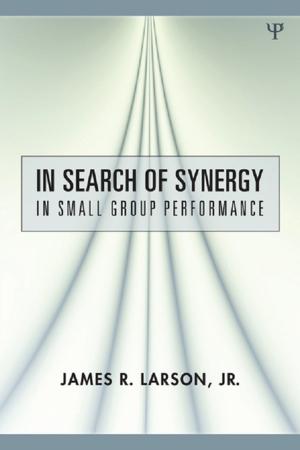Indian Thought and Western Theism
The Vedānta of Rāmānuja
Nonfiction, Social & Cultural Studies, Social Science, Cultural Studies, Ethnic Studies, Political Science| Author: | Martin Ganeri | ISBN: | 9781317551669 |
| Publisher: | Taylor and Francis | Publication: | February 11, 2015 |
| Imprint: | Routledge | Language: | English |
| Author: | Martin Ganeri |
| ISBN: | 9781317551669 |
| Publisher: | Taylor and Francis |
| Publication: | February 11, 2015 |
| Imprint: | Routledge |
| Language: | English |
The encounter between the West and India in the modern period has also been an encounter between Western modernity and the traditions of classical Indian thought. This book is the study of one aspect this encounter, that between Western scholasticism and one classical Indian tradition of religious thought and practice: the Vedānta.
In the modern period there have been many attempts to relate Western theistic traditions to classical Indian accounts of ultimate reality and the world. Parallels have usually been drawn with modern forms of Western philosophy or modern trends in theism. Modern Indological studies have continued to make substantial use of Western terms and concepts to describe and analyse Indian thought. A much-neglected area of study has been the relationship between Western scholastic theology and classical Indian thought. This book challenges existing parallels with modern philosophy of religion and forms of theism. It argues instead that there is an affinity between scholasticism and classical Indian traditions. It considers the thought of Rāmānuja (traditional dates 1017-1137 CE), who developed an influential theist and realist form of Vedānta, and considers how this relates to that of the most influential of Western scholastics, Thomas Aquinas (1224/5-1274 CE). Within what remain very different traditions we can see similar methods of enquiry, as well as common questions and concerns in their accounts of ultimate reality and of the world.
Arguing that there is indeed an affinity between the Western scholastic tradition and that of classical Indian thought, and suggesting a reversal of the tendencies of earlier interpretations, this book will be of interest to students and scholars of Asian religion, Hinduism and Indian philosophy.
The encounter between the West and India in the modern period has also been an encounter between Western modernity and the traditions of classical Indian thought. This book is the study of one aspect this encounter, that between Western scholasticism and one classical Indian tradition of religious thought and practice: the Vedānta.
In the modern period there have been many attempts to relate Western theistic traditions to classical Indian accounts of ultimate reality and the world. Parallels have usually been drawn with modern forms of Western philosophy or modern trends in theism. Modern Indological studies have continued to make substantial use of Western terms and concepts to describe and analyse Indian thought. A much-neglected area of study has been the relationship between Western scholastic theology and classical Indian thought. This book challenges existing parallels with modern philosophy of religion and forms of theism. It argues instead that there is an affinity between scholasticism and classical Indian traditions. It considers the thought of Rāmānuja (traditional dates 1017-1137 CE), who developed an influential theist and realist form of Vedānta, and considers how this relates to that of the most influential of Western scholastics, Thomas Aquinas (1224/5-1274 CE). Within what remain very different traditions we can see similar methods of enquiry, as well as common questions and concerns in their accounts of ultimate reality and of the world.
Arguing that there is indeed an affinity between the Western scholastic tradition and that of classical Indian thought, and suggesting a reversal of the tendencies of earlier interpretations, this book will be of interest to students and scholars of Asian religion, Hinduism and Indian philosophy.















